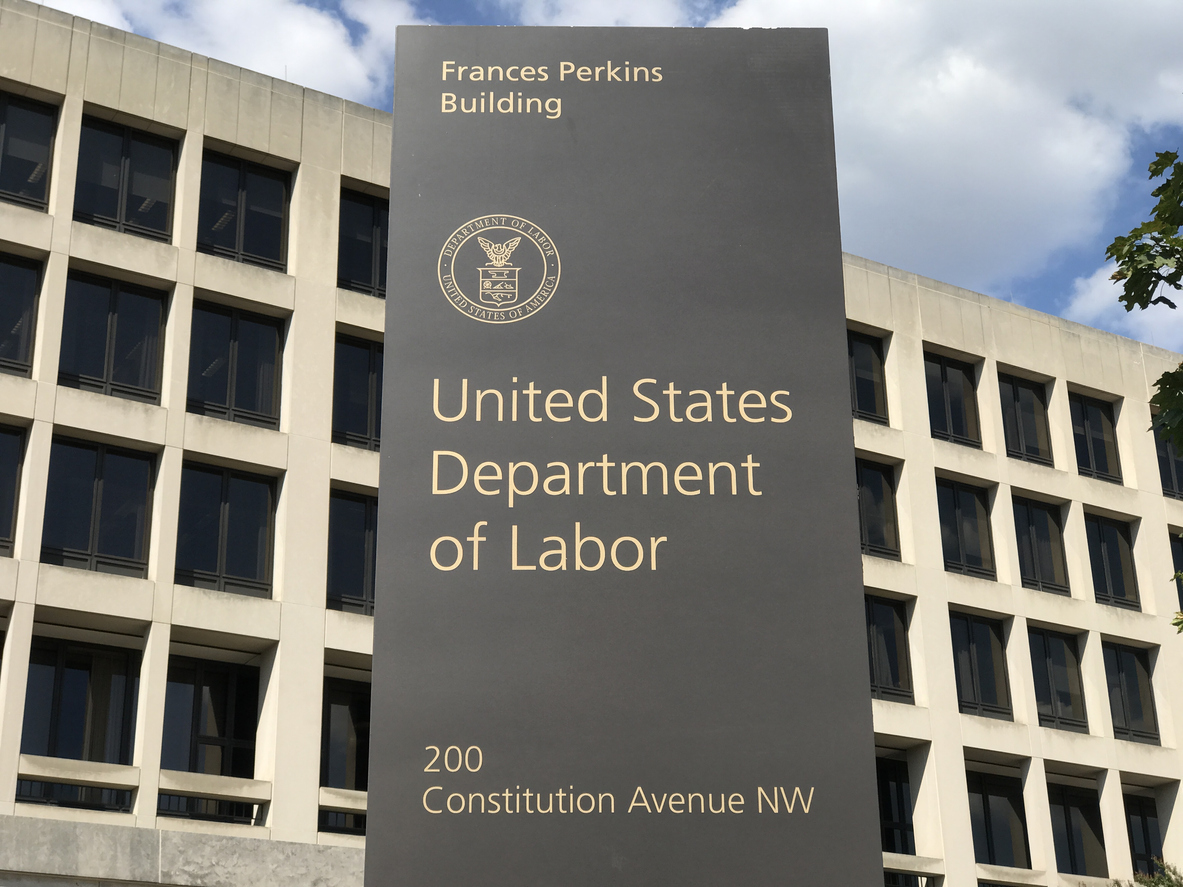
Written by
Aidan Farrish
Aidan is an aPHR-certified writer on the marketing team at BerniePortal. She writes about HR, healthcare, and benefits.
DOL Proposes $55k Overtime Rule Threshold, Schedules Regular Increases

It’s here, the news we have all been waiting for: the Department of Labor (DOL) has proposed the new overtime rule threshold guidance for employers.
Let’s break down what exactly may be changing and further proposed changes you should watch out for to remain compliant with strict overtime legislation.
DOL Raises Minimum Salary Threshold
The DOL has increased the minimum salary threshold to $1,059 weekly, or $55,068 annually.
Employees making $1,059 weekly or less will be eligible for overtime pay if the overtime rule passes.
The Trump administration set the overtime threshold at $684 weekly, or $35,568 annually, as compared to the Obama administration’s attempt to set it at $913 weekly, or $47,476 annually, in 2016.
This marked increase of $35,568 to $55,068 could expand overtime eligibility to 3.6 million workers, according to a press release from the DOL on Wednesday, Aug. 3, 2023.
What Does This Mean for Employers?
This ruling specifically affects employees under Section 13(a)(1) of the Fair Labor Standards Act (FLSA), which are employees working in:
- Bona fide executive roles
- Administrative roles
- Professional roles
- Outside sales roles
- Some computer-related roles
- Highly compensated roles
If you have employees in these roles regularly working overtime hours, you must evaluate your payscale and payroll options in preparation for this law's passing. To start, you can refresh yourself on the “duties test” implemented by the FLSA to determine overtime eligibility.
The “duties test” determines whether employees are exempt from overtime threshold rules due to their role or job responsibilities. It is not changing with the new threshold proposal; however, the figures highlighted in yellow are the current standard and will be affected should the ruling pass.
As a note, job titles do not affect an employee’s eligibility for overtime, only the role within which they work.
Here is a breakdown of the FLSA’s “duties test” as defined by the DOL:
- Executive Exemption: To qualify for the executive exemption, an employee must meet all of the following criteria:
- They must be compensated on a salary basis (as defined in the regulations) of at least $684* weekly
- Their primary job must be in a leadership function over a department, subdivision, or company-wide basis
- They must regularly manage at least two or more full-time employees or full-time equivalents (FTEs)
- They must be decision-makers in cases of hiring or firing; even if they do not directly have the responsibility of hiring or firing; their position must affect those decisions
- Administrative Exemption: To qualify for the administrative exemption, an employee must meet all of the following criteria:
- They must be compensated on a salary basis (as defined in the regulations) of at least $684* weekly
- Their primary job must involve office or non-manual work directly related to management or business operations
- Their primary job requires a level of discretion and independent judgment to be exercised while fulfilling the duties of their role
- Professional Exemption: To qualify for the professional exemption as a learned professional, an employee must meet all of the following criteria:
- They must be compensated on a salary basis (as defined in the regulations) of at least $684* weekly
- Their primary duty must require advanced knowledge, described as predominately intellectual work
- The advanced knowledge must be in a field of science or learning The advanced knowledge must be customarily acquired by a prolonged course of specialized intellectual instruction
To qualify for the creative professional employee exemption, an employee must meet all of the following criteria:
They must be compensated on a salary basis (as defined in the regulations) of at least $684* weekly
Their primary duty must involve a creative pursuit, such as invention or the application of their imagination to achieve within their role
-
Computer Employee Exemption: To qualify for the computer employee exemption, an employee must meet all of the following criteria:
-
They must be compensated on a salary basis (as defined in the regulations) of at least $684* weekly and $27.63 hourly
-
They must work as a computer systems analyst, computer programmer, software engineer, or other similarly skilled worker in the computer field performing these duties:
-
The application of systems analysis techniques and procedures, including consulting with users, to determine hardware, software, or system functional specifications
-
The design, development, documentation, analysis, creation, testing, or modification of computer systems or programs, including prototypes, based on and related to user or system design specifications
-
The design, documentation, testing, creation, or modification of computer programs related to machine operating systems
-
A combination of the aforementioned duties, the performance of which requires the same level of skills.
-
-
-
Outside Sales Exemption: To qualify for the outside sales exemption, an employee must meet all of the following criteria:
-
Their primary duty must be making sales (as defined in the FLSA), or obtaining orders or contracts for services or for the use of facilities for which a consideration will be paid by the client or customer
-
They must work outside of the office or place of business in an effort to fulfill the duties of their role
-
Items highlighted in yellow are what the DOL is proposing to change with their new threshold increase. These figures are the weekly wage threshold amounts under the Trump administration’s current ruling of $684 weekly.
Additionally, this proposal will also change the overtime threshold for highly compensated employees.
DOL Overtime Proposal Affects Highly Compensated Employees
Under the proposed legislation, highly compensated employees will be exempted from overtime pay if they are making $143,988 or more annually.
Currently, highly compensated employees are considered those making $107,432 or more annually, and are further defined by the DOL and FLSA as those “...customarily and regularly perform[ing] at least one of the duties of an exempt executive, administrative or professional employee identified in the standard tests for exemption.”
To be exempt from overtime pay, highly compensated employees must also meet the criteria of making at least $684 weekly as a salary or on a fee basis. So if a high-performing employee makes at least $684 weekly in base salary wages, and then earns up to $107,432 in commissions or bonuses, then they are ineligible for overtime pay under current legislation.
DOL Overtime Threshold Rule Sets Precedent for Scheduled Updates
Another important factor of the proposal is the automatic update provision. This provision enables the DOL to update overtime thresholds beyond the current proposal’s figures every three years.
The tri-annual updates would be published as a notice in the Federal Register 150 days before implementing each updated overtime threshold. If it is published less than 150 days prior, the provision stipulates that it may be delayed from taking effect for an additional 120 days.
This enables the DOL to set into motion regular threshold increases on a tri-yearly basis, with a 150-day timeline for employers to make necessary budgeting and payroll adjustments.
What’s Happening Next?
Legislation like this is normally challenged in court, and the 60-day comment period has just begun.
HR professionals should begin to prepare for changes in case the rule passes. The 60-day comment period gives you two months to set yourself up for success. You can do so by:
- Auditing your current payroll system to ensure accuracy and efficiency
- Following up with leadership on planned Q4 budgeting for the next year
- Identify employees in your organization that will be affected by the proposed changes
- Revisit the current salaries and pay structures of everyone in your workforce
- Determine potential strategies to remain compliant with legislation while staying within a predetermined budget
As the DOL further defines the proposal and comments begin to arise, we will continue to provide breakdowns of complicated legislative regulations and strategies to help you prepare and remain compliant should the ruling pass.
Additional Resources
You can stay informed, educated, and up to date with important HR topics using BerniePortal’s comprehensive resources:
- BernieU—free online HR courses, approved for SHRM and HRCI recertification credit
- BerniePortal Blog—a one-stop shop for HR industry news
- HR Glossary—featuring the most common HR terms, acronyms, and compliance
- Resource Library—essential guides covering a comprehensive list of HR topics
- HR Party of One—our popular YouTube series and podcast, covering emerging HR trends and enduring HR topics

Written by
Aidan Farrish
Aidan is an aPHR-certified writer on the marketing team at BerniePortal. She writes about HR, healthcare, and benefits.




Submit a Comment